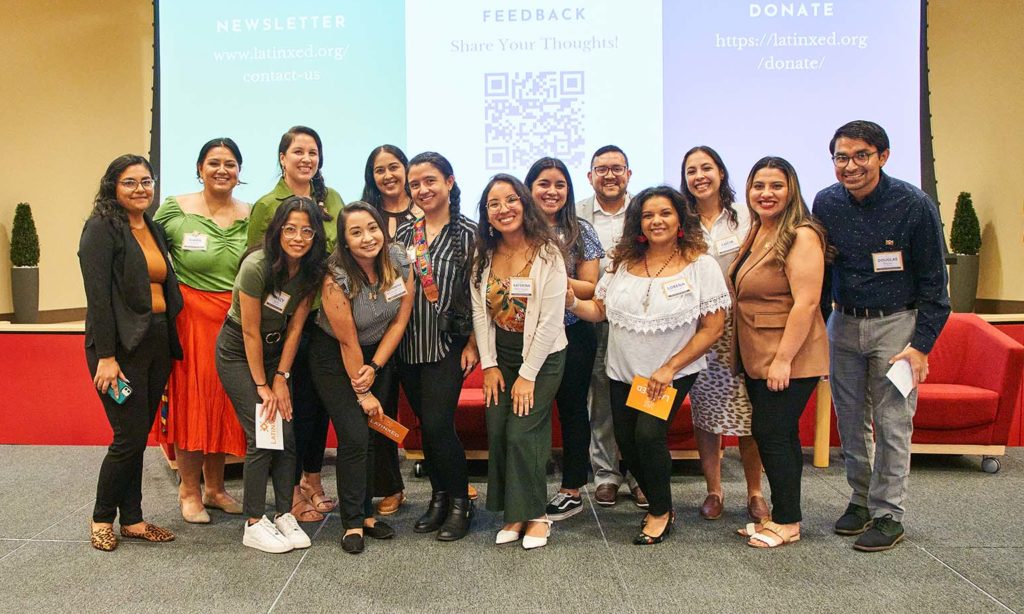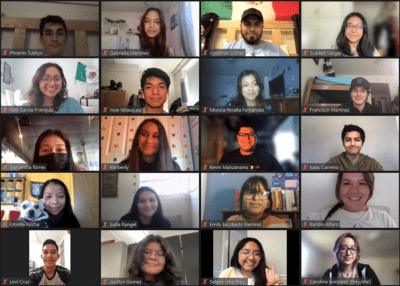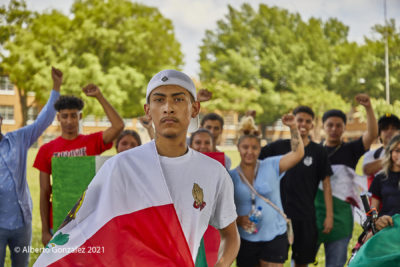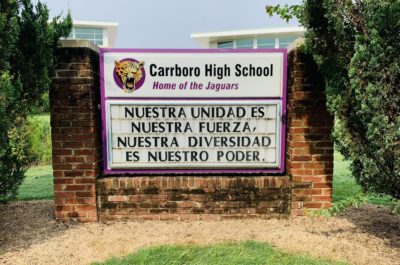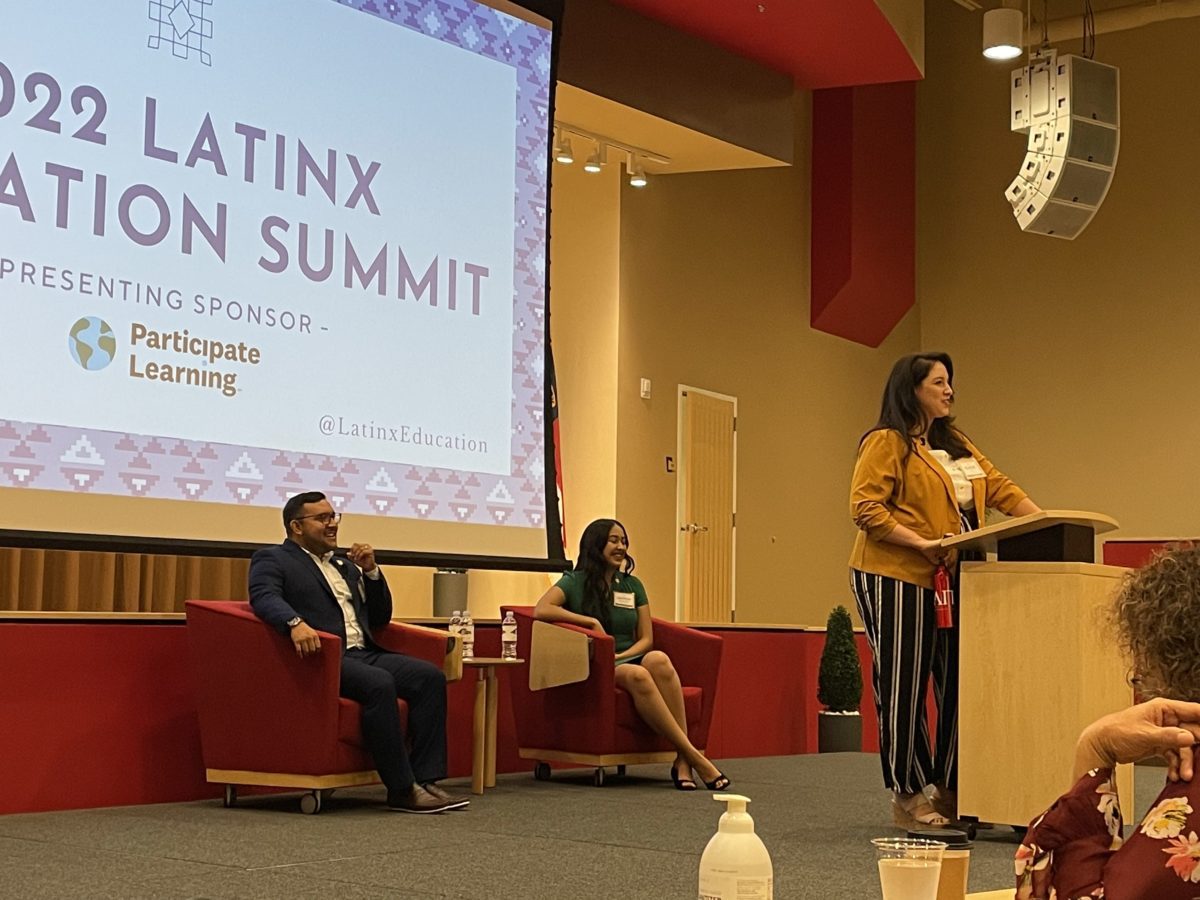

To kick off Latinx Heritage Month, representatives in education from 45 North Carolina counties filled the conference center of Guilford Technical Community College for the 2022 Latinx Education Summit. Nearly 300 attendees gathered to celebrate culture, talk about the state of Latinx Education in North Carolina, and build a blueprint for achieving a better present and future for Latinx students and families.
About LatinxEd
LatinxEd co-founders, Elaine Townsend Utin and Ricky Hurtado, share the experience of being raised in the rural south by Latinx immigrant parents. Recognizing the barriers facing their community, they created an educational nonprofit committed to investing in Latinx leadership and expanding educational equity and opportunity in North Carolina.
Since being founded in 2018, LatinxEd has been working to “reimagine and design equitable, inclusive learning environments and experiences that truly recognize, honor, and serve the diverse needs of the Latinx immigrant community.”
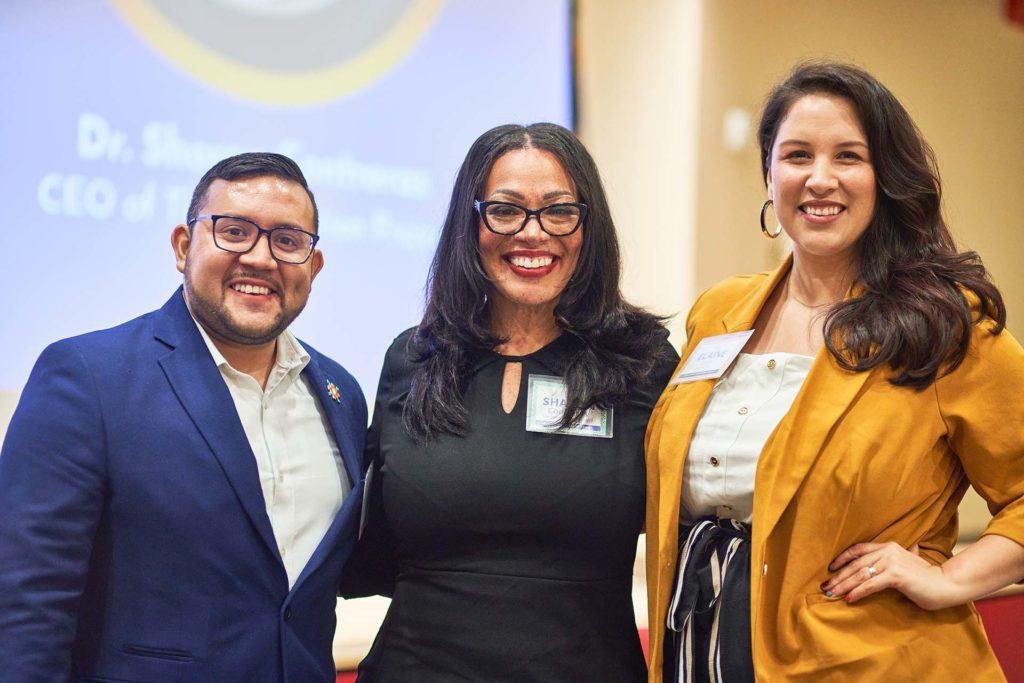

#SomosNC
The summit’s foundations were established by the introduction of data from LatinxEd’s Year Long #SomosNC statewide listening tour. The tour was centered on identifying, learning, and engaging with the challenges and opportunities of the Latinx community. From the experience, the organization was able to gain insight from 250 students, community leaders, and caregivers across North Carolina.
The full report from the listening tour will be released later in Fall 2022.
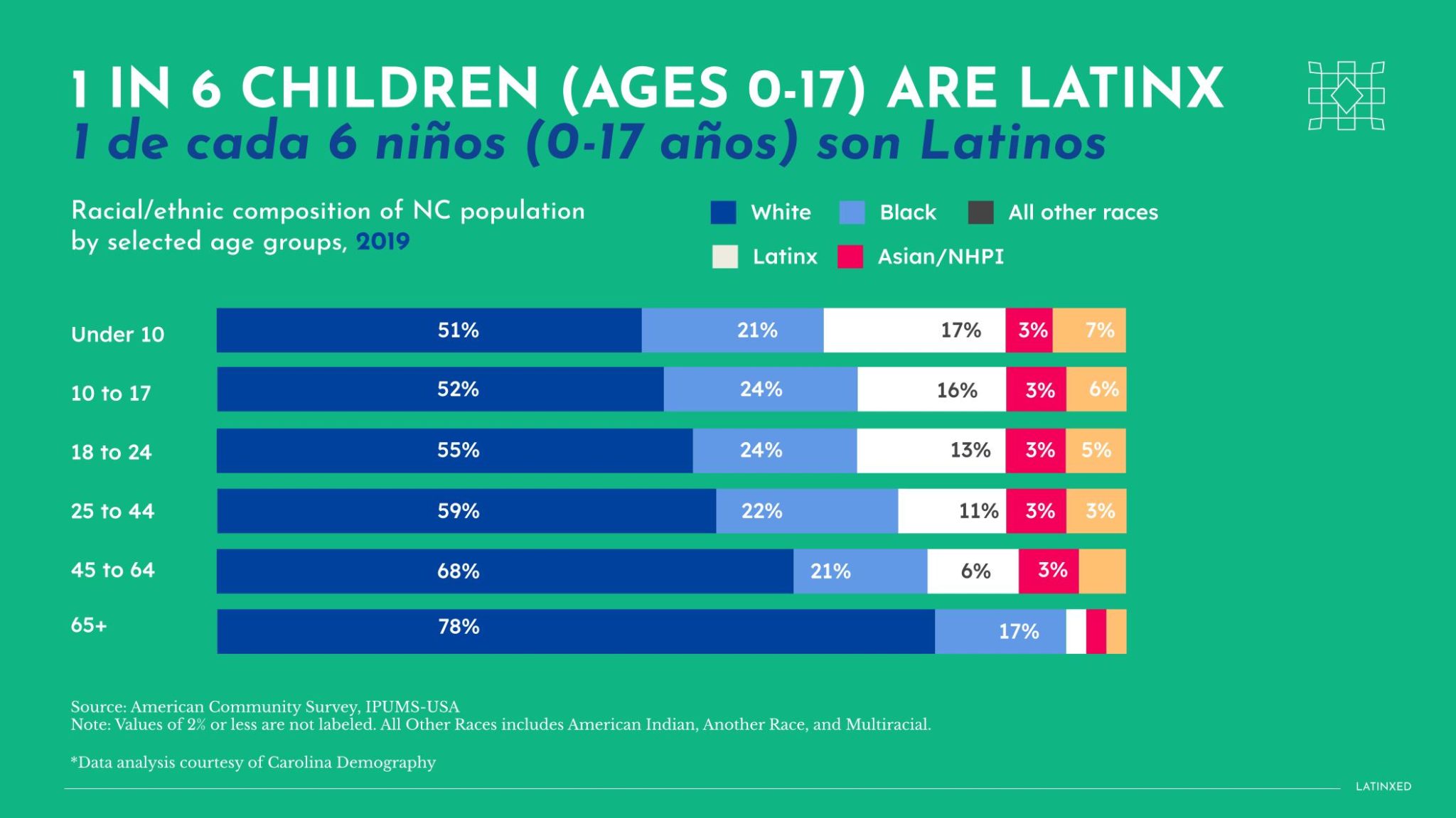

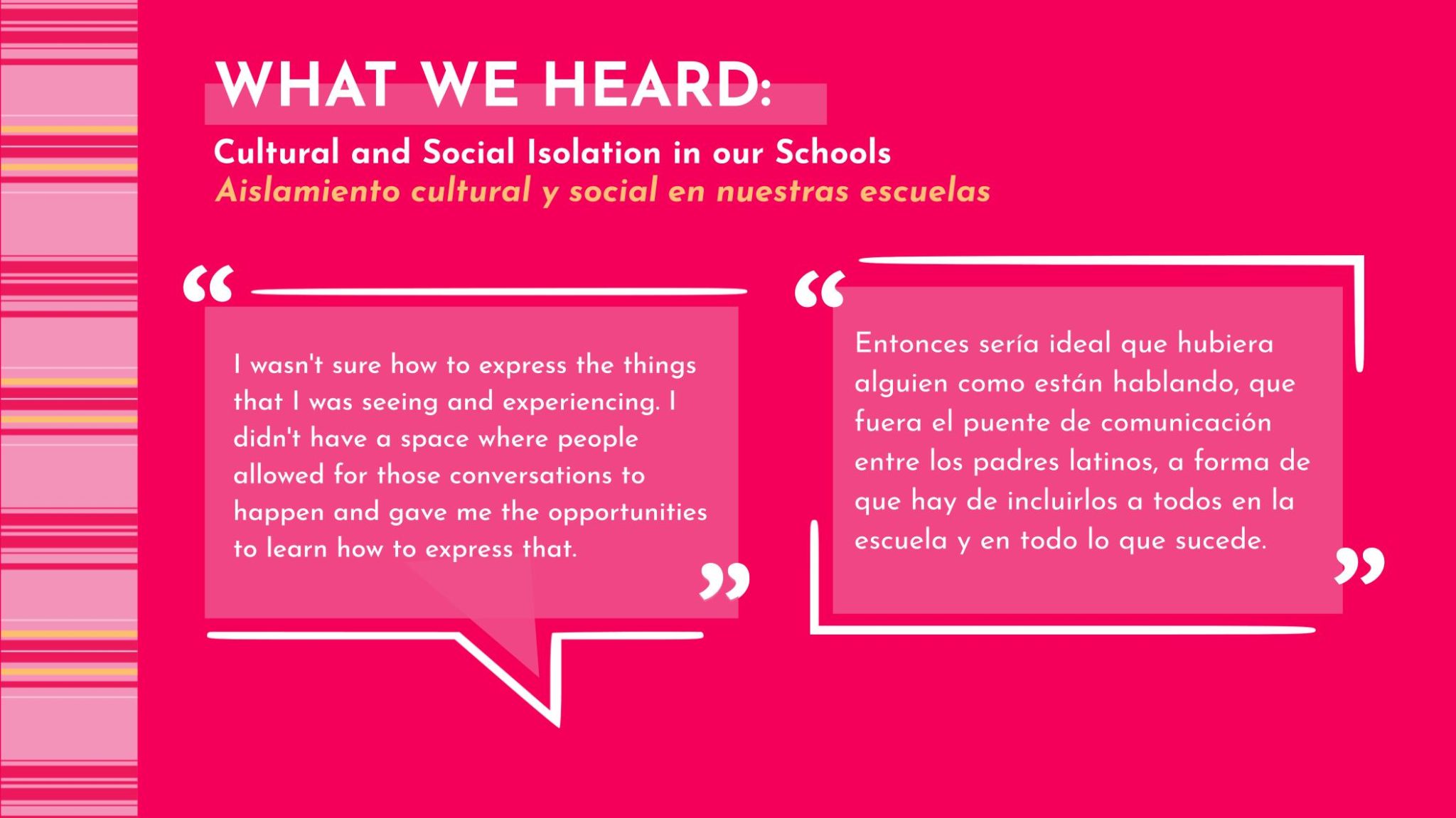

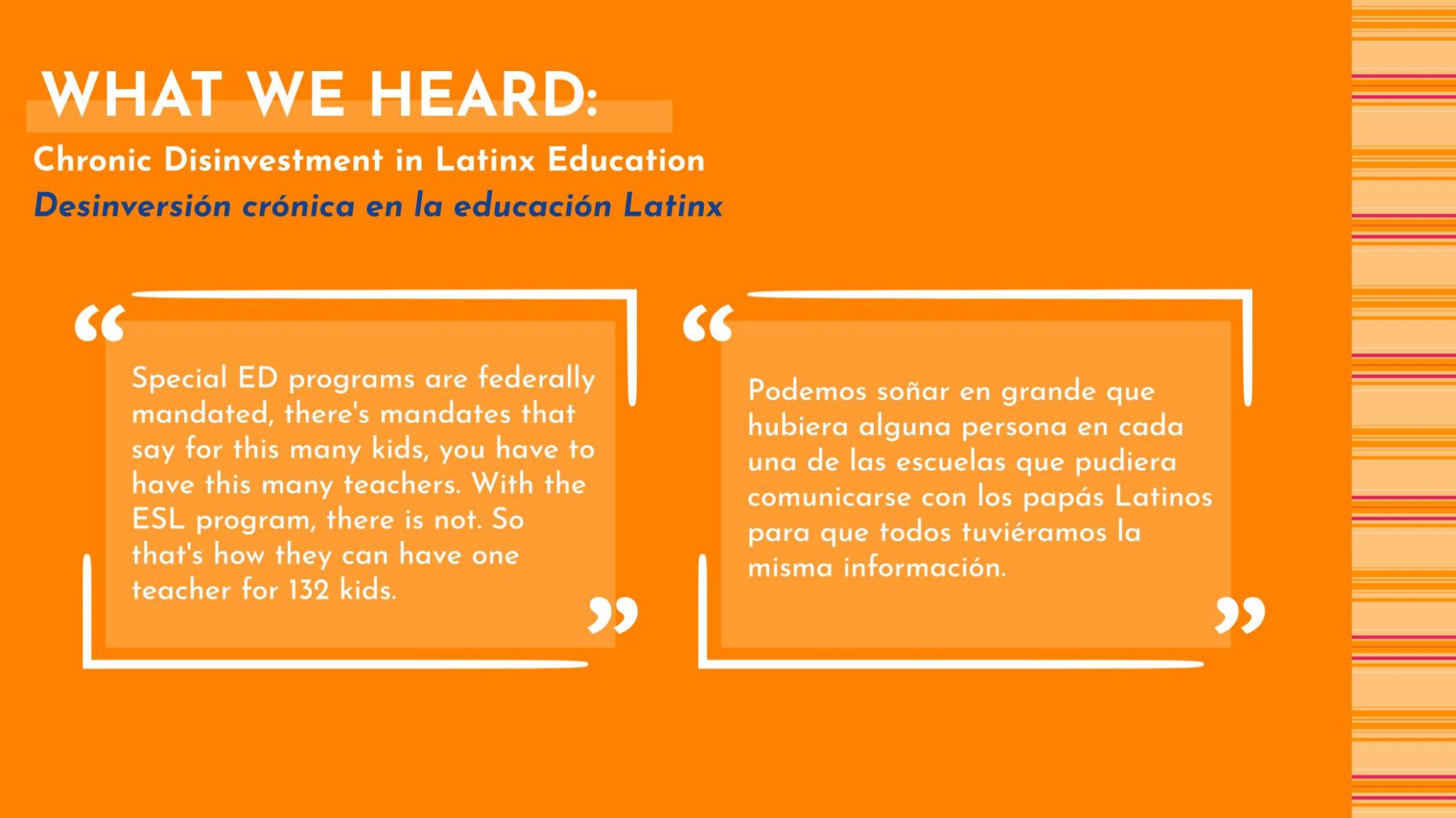

Led by community impact manager Zamantha Granados, the tour revealed a theme of chronic disinvestment in Latinx education. This was evident by what respondents said was the lack of prioritization of resources specific to the community, such as funding for recruitment of translators, interpreters, and display of multilingual signage.
These resources being treated as a “luxury rather than a necessity” contributes Latinx students and families within the schools experiencing cultural isolation.
“Your budget is a direct reflection of what you value.”
Dr. Sharon Contreras, Keynote Speaker and CEO The Innovation Project
A series of panel discussions further unpacked the array of challenges facing the Latinx community, covering topics such as language justice, mental health, college accessibility, and immigration. Throughout these various conversations, one central theme emerged: the importance of representation.
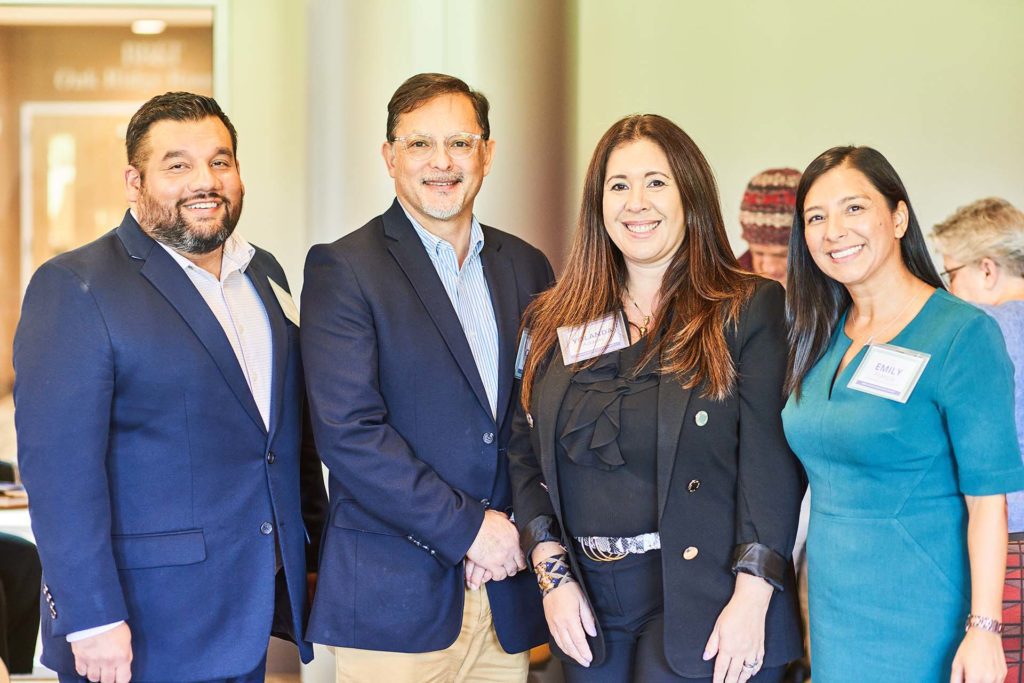

“What futures are we possibly eliminating because representation is lacking?”
Dayson Pasion, teacher advisor at the Office of the Governor
Latinx representation as an afterthought contributes to the erasure of identity. One example is the lack of multilingualism in the education system.
The absence of multilingual/dual-language programs means that students new to the United States and English as a second language students often aren’t provided the support that they need to receive content in their native language throughout their journey of learning English. This means their education is halted until they learn a second language.
“When I walk into that space that I’ve been granted, I walk into a space to make sure that my students do not put away their culture, do not put away their language, and do not put away the sacrifices their parents made for them to be here.”
Emily Francis, ESL teacher at Concord High School
As previously mentioned, this deficit is linked to the lack of funding for the recruitment of translators and interpreters. Several panelists and participants expressed the strain that many organizations and schools systems place on bilingual educators who become de facto translators and interpreters, often without additional compensation despite the additional job responsibilities.
In all, a point of emphasis during the summit was developing better schools for all students. Given the rapid growth of the Latinx presence in North Carolina, especially among school-age students, treating support for Latinx students and families as a necessity is imperative to achieving the state’s goal of 2 million by 2030.
“Whether it’s a language barrier or a cultural barrier, folks recognize that not being able to communicate effectively is much bigger than simply not being able to exchange information. It’s a sense of belonging, it’s a sense of trust, and an opportunity to build bridges and an opportunity to actually move forward in the same direction.”
Ricky Hurtado, LatinxEd cofounder and state legislator
Proximate to the Problem
Over the course of the two-day summit, participants were encouraged to move “From Dreams to Action.” This veered from traditional event structure by allowing all participants to feel belonging to a casa.
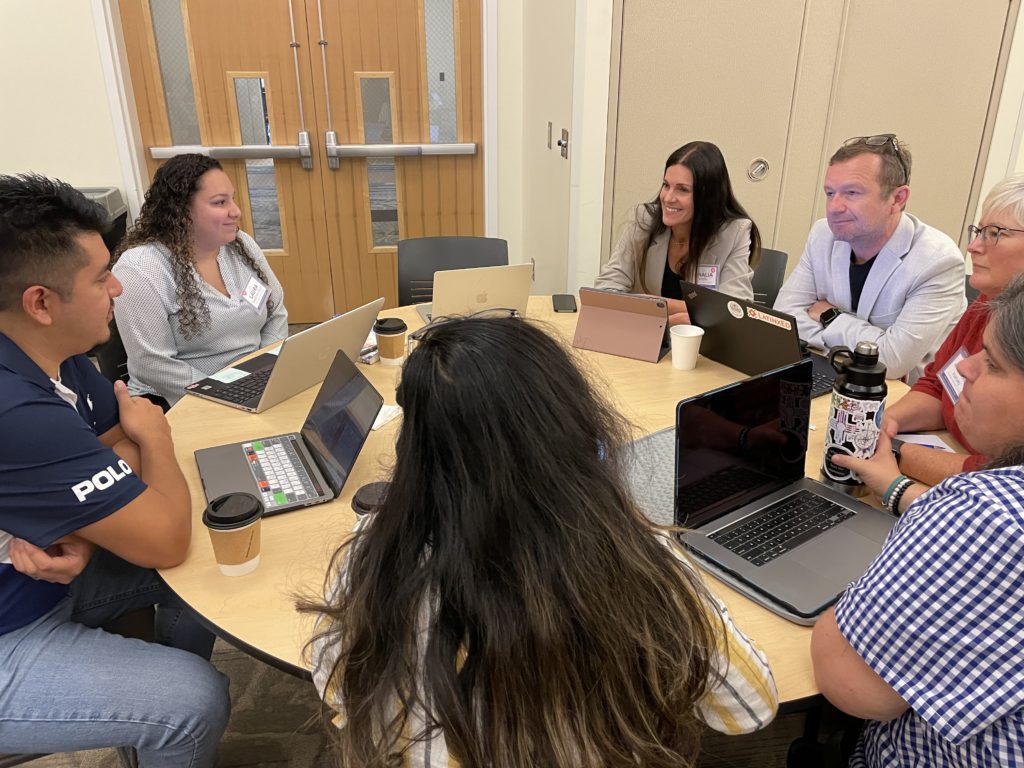

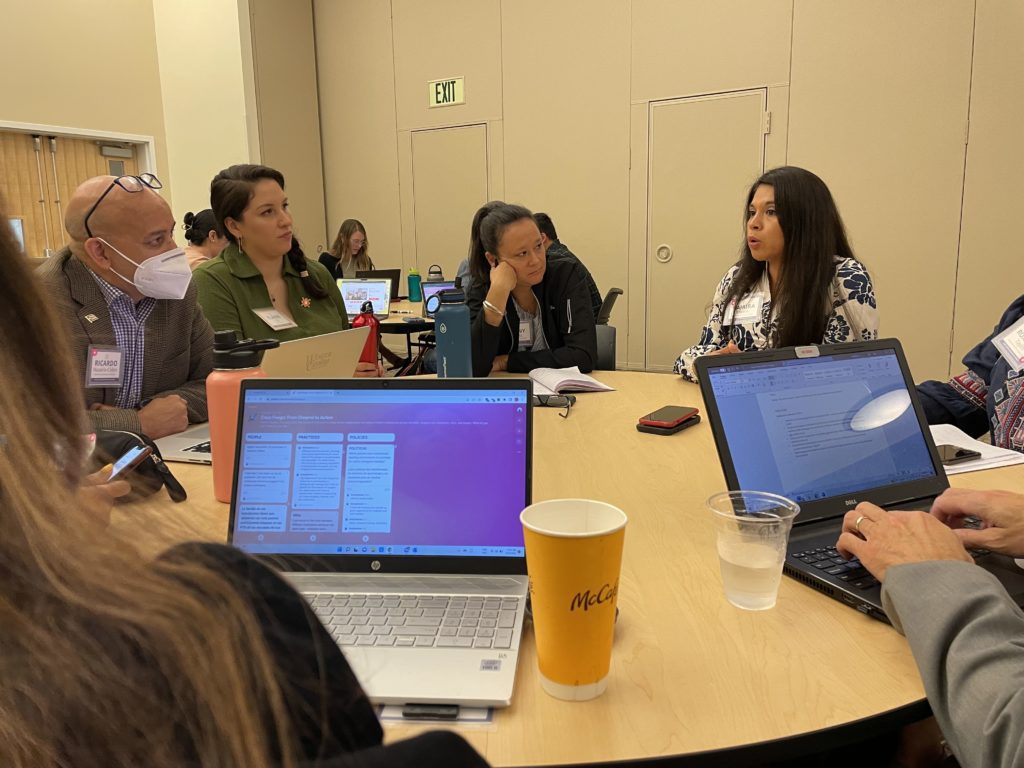

In these small groups, members worked to develop tangible solutions centered on what the collective seeks to be true regarding people, policies, and procedures.
These solutions proposed alterations to matters such as establishing residency to access college, certification and licensure options for multilingual educators, and language learning courses being a part of professional development for educators.
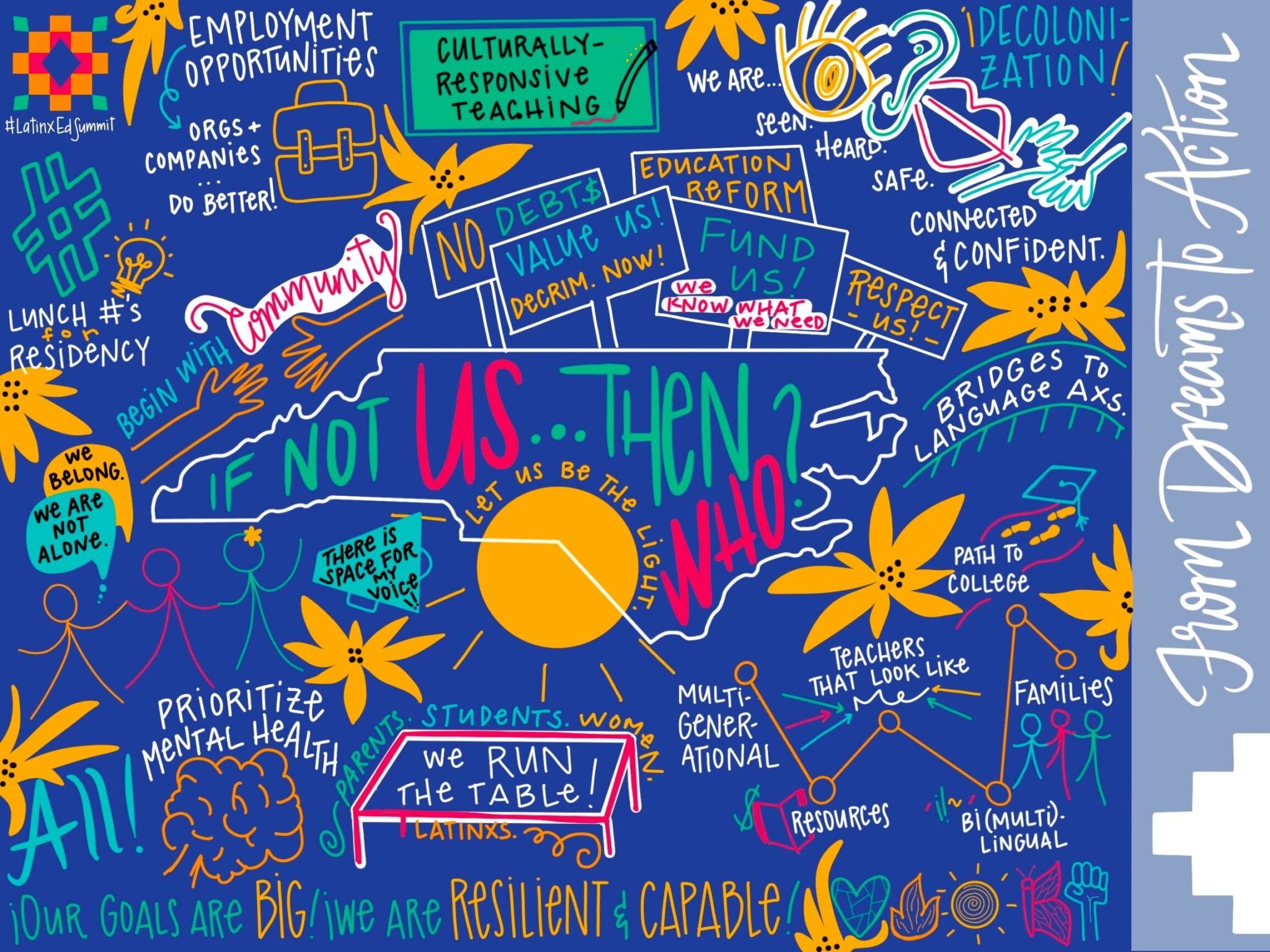

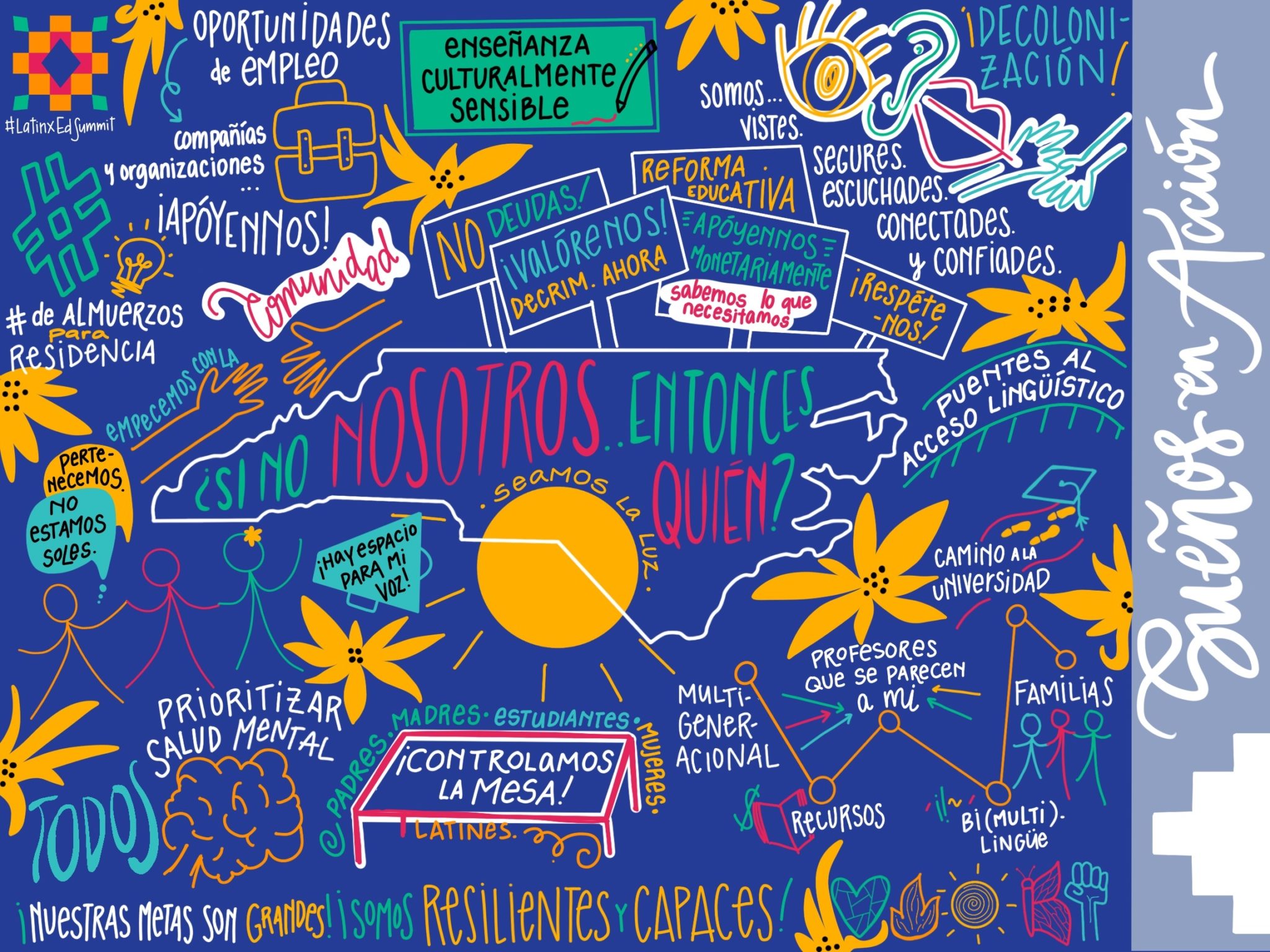

These proposals reaffirmed the overarching goal of the statewide tour, summit, and work of LatinxEd: the people proximate to the problem have the capacity to develop solutions; it just requires others to listen.
